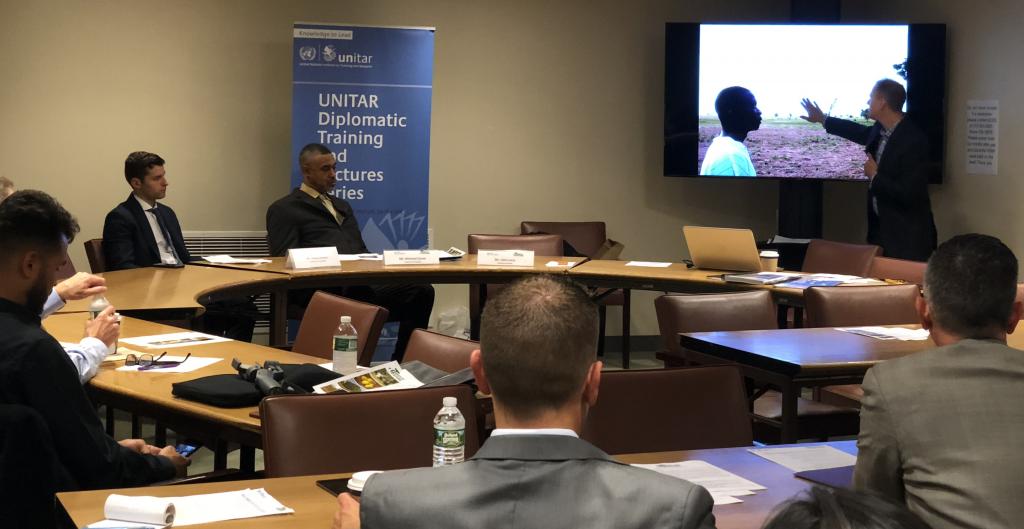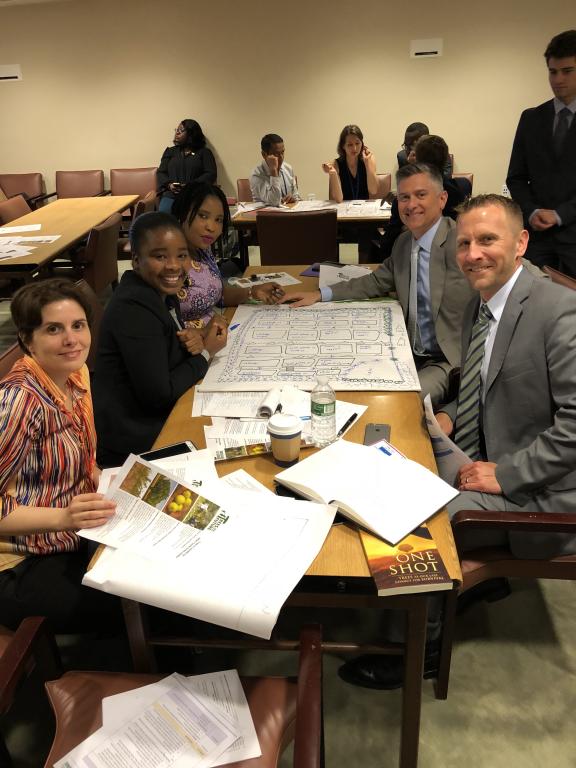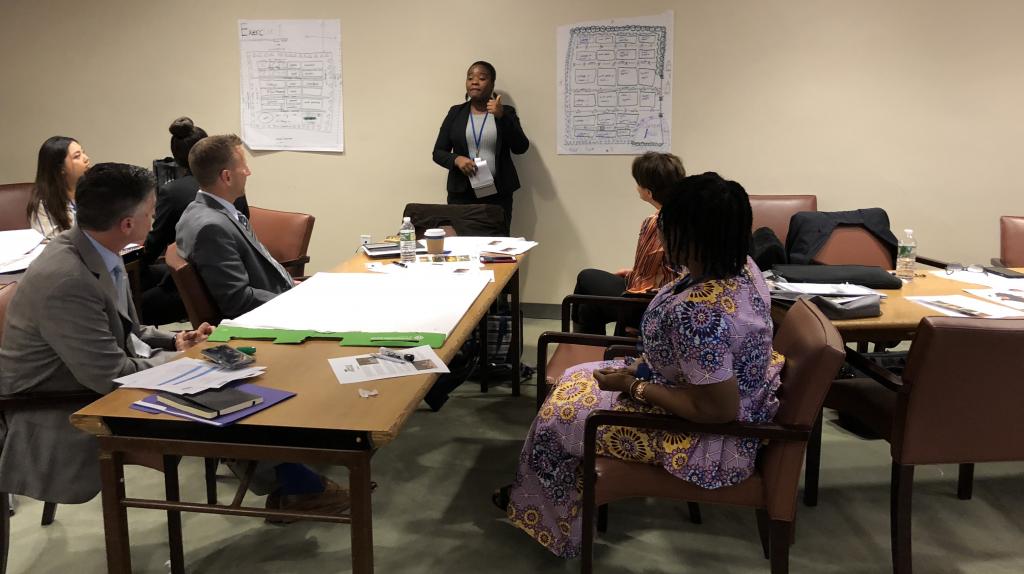Ending Poverty, Hunger & Deforestation Workshop
05 June 2018, New York, United States – The United Nations Institute for Training and Research (UNITAR) hosted a half-day, highly interactive workshop with the Maryland-based organization Trees for the Future on the topics of ending poverty, hunger and deforestation, coinciding with the World Environment Day.
 After UNITAR’s welcoming remarks from Mr. Pelayo Alvarez, the session began with introductions from the Trees for the Future organization and the audience. Through the platform of UNITAR, a wide range of audience were introduced to the workshop including participants from various NGOs, staffs from the Permanent Missions and the people whose home countries are facing severe threats due to deforestation and extreme poverty. Trees for the Future, founded in 1989, helps communities around the world solve environmental and economic problems by strategically planting trees and crops. One of the goals of the organization is to increase the coverage of tress in rural communities, provide guidance for the farmers to create a sustainable gardening environment of which they could harvest regularly and also benefit for life.
After UNITAR’s welcoming remarks from Mr. Pelayo Alvarez, the session began with introductions from the Trees for the Future organization and the audience. Through the platform of UNITAR, a wide range of audience were introduced to the workshop including participants from various NGOs, staffs from the Permanent Missions and the people whose home countries are facing severe threats due to deforestation and extreme poverty. Trees for the Future, founded in 1989, helps communities around the world solve environmental and economic problems by strategically planting trees and crops. One of the goals of the organization is to increase the coverage of tress in rural communities, provide guidance for the farmers to create a sustainable gardening environment of which they could harvest regularly and also benefit for life.
Highly concentrated on problem-solving, solution-driven approach, Mr. John Leary, the Executive Director of Trees for the Future organization, and the author for the book One Shot – Trees as Our Last Chance for Survival, introduced the agricultural supply and value chain perceived by the organization, and three crucial phases for farmers to improve the outcomes of their farms: protecting, diversifying, optimizing. The first practical exercise asked the participants to design a sustainable forest garden. Mr. John Leary explained the opportunities behind the agroforestry and how it increased the competitiveness of smallholders in agricultural growth sectors.
The second practical exercise, also led by Mr. John Leary, was built on top of the first practical exercise. Participants were asked to optimize space, time, water and sunlight on the forest garden in order to make the design more efficient and sustainable. The second practical exercise was debriefed by Mr. Michael Carson, the Director of Programs. The last analytical session focused on the challenges in diversifying smallholder farming systems. There are several challenges that smallholders may encounter including difficulties on credit and financial system, the lack of supports to farmers, water system and confusions on the management of market system.
The workshop directly targeted SDG Goal 1, Goal 2 and Goal 15: no poverty, zero hunger and life on land. It was actually dedicated to convincing individuals to plant more trees, and to implement sustainable business models financing through both public and private sectors. Trees for the Future closed the event announcing that by the end of its 30th birthday, it will be able to plant at least 30 million trees in the world – and the benefit of trees will eventually benefit the farmers, and contributes to a sustainable environment in which both human and nature could benefit from for generations.

